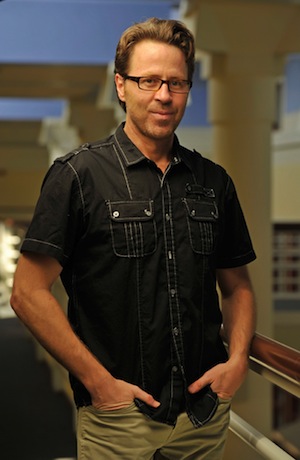
Research conducted at Vanderbilt is featured in Brains on Trial with Alan Alda, a two-part televised series airing Sept. 11 and Sept. 18 on PBS that explores how the growing ability to separate truth from lies may radically affect the way criminal trials are conducted in the future. It will be shown at 9 p.m. central time on WNPT, Nashville’s public television station.
For about seven minutes near the end of the second hour, Alda visits with Rene Marois, professor of psychology to discuss research on law and neuroscience at Vanderbilt using brain imaging. In addition to the two-hour special, the series has an accompanying website that includes commentary from Owen Jones, New York Alumni Chancellor’s Chair in Law, professor of biological sciences and director of the MacArthur Foundation Research Network on Law and Neuroscience.
Imaging work using fMRI and rTMS by Marois and Jones has revealed, among other findings, the brain activity underlying decisions about whether to punish someone and, if so, how much. Some of this law and neuroscience work is funded by more than $5 million in grants from the MacArthur Foundation, which established a new national research network headquartered at Vanderbilt and headed by Jones.

“Law makes assumptions about human decision-making, which neuroscience is very rapidly illuminating,” said Jones. “With the collaborative and interdisciplinary faculty, facilities, and students we have here at Vanderbilt, we’ve been very well positioned to be out front in this new field, exploring both the challenges and the opportunities.”
Brains on Trial centers around the trial of a fictional crime: a robbery staged in a convenience store. While the crime is fictional, the trial is conducted before a real federal judge and argued by actual practicing attorneys. The first part concludes with the jury’s verdict. The second part looks at the sentencing phase.
The trial segments are interspersed with segments on neuroscience research that already has influenced Supreme Court decisions. Former Vanderbilt law faculty Nita Farahany, now at Duke University, is also interviewed.
The neuroscientists demonstrate how functional MRIs and other brain scanning techniques are exploring lie detection, facial recognition, memory decoding, racial bias, brain maturity, intention and emotion. Brains on Trial ultimately seeks to explore whether neuroscience can make the criminal justice system more just.